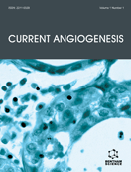Abstract
Despite advances in cancer treatment protocols, non-small cell lung cancer continues to be refractory to conventional radiation therapy. This resistance to ionizing radiation is often determined by the response of the tumor vasculature. Thus, a significant need exists for the development of novel and effective anti-angiogenic radiosensitizing agents. The combined findings in this study identify autotaxin and lysophosphatidic acid as integral signaling components in irradiated non-small cell lung cancer models. Our data show that co-cultures of vascular endothelial cells and lung cancer cells produce lysophosphatidic acid (LPA) in response to ionizing radiation (3 Gy), which correlates with the level of autotaxin secretion. Furthermore, conditioned medium from autotaxin-secreting lung tumor cells stimulates phosphorylation of pro-survival kinases in irradiated vascular endothelium. Using an analog of lysophosphatidic acid, α- bromomethylene phosphonate (BrP-LPA), we demonstrate that the chemical inhibition of autotaxin and LPA-specific receptors results in reduced endothelial invasion and attenuated tumor cell migration. Together, these results suggest that targeting autotaxin-mediated signaling pathways regulating tumor angiogenesis may improve the response of non-small cell lung cancer to radiation therapy.
Keywords: Autotaxin, invasion, lysophosphatidic acid, migration, non-small cell lung cancer, radiation, vascular endothelium
 18
18

